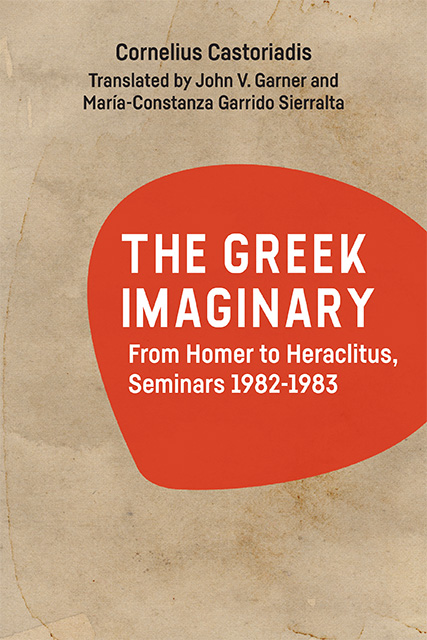VIII - Seminar from January 26, 1983
Published online by Cambridge University Press: 20 October 2023
Summary
To finish up what’s been said and introduce the subject that will occupy us now, I’ll present some considerations about myth in general and, of course, about myth in Greece. Up to now we’ve essentially talked through the Homeric poems, the contents of which are profoundly interwoven with the mythical world. Our discussion is now going to take as its starting point (or as a bridgehead, if you will) the mythical figurations that Hesiod offers in the Theogony, figurations which will, furthermore, subsist for a long time afterwards. Another reason to reflect on myth is this historical problem, i.e. this historiography of knowing whether the birth of philosophy in Greece translates a radical break with mythology (a first position), or whether (a second position) it’s merely a continuation. It’s a discussion that has long occupied and still occupies, for that matter, the specialists. I already suggested that I offer a response that refuses the two terms.
Contrary to what is asserted by what I will call the dominant ideology in sociology and history as it’s expressed especially in structuralism, myth’s meaning or function does not consist in carrying out a logical organization of the world, and particularly not according to a logic of binary oppositions (raw/cooked, honey/ash, etc.). We can indeed find a binary logic in myth, but it is, if you will, merely an instrument. This has nothing surprising about it since, after all, this binary logic is quite simply the fundamental form of what I call ensemblist-identitarian logic or, if you will, an instrumental logic. I mean a logic of classification and of separation which thus proceeds always by A/non-A, yes/no, and which sometimes takes what the logician would simply call contradiction (A/non-A) and pushes it towards a polar opposition (A/“the thing at the extreme conceivable opposite of A”), which is not at all the same. In short, myth, if it contains binary logic, is far from exhausting itself with that. The most perspicacious authors—Vernant, for example—understand this perfectly and show the role of ambiguity in this logic of polarity.
- Type
- Chapter
- Information
- The Greek ImaginaryFrom Homer to Heraclitus, Seminars 1982-1983, pp. 137 - 158Publisher: Edinburgh University PressPrint publication year: 2023



